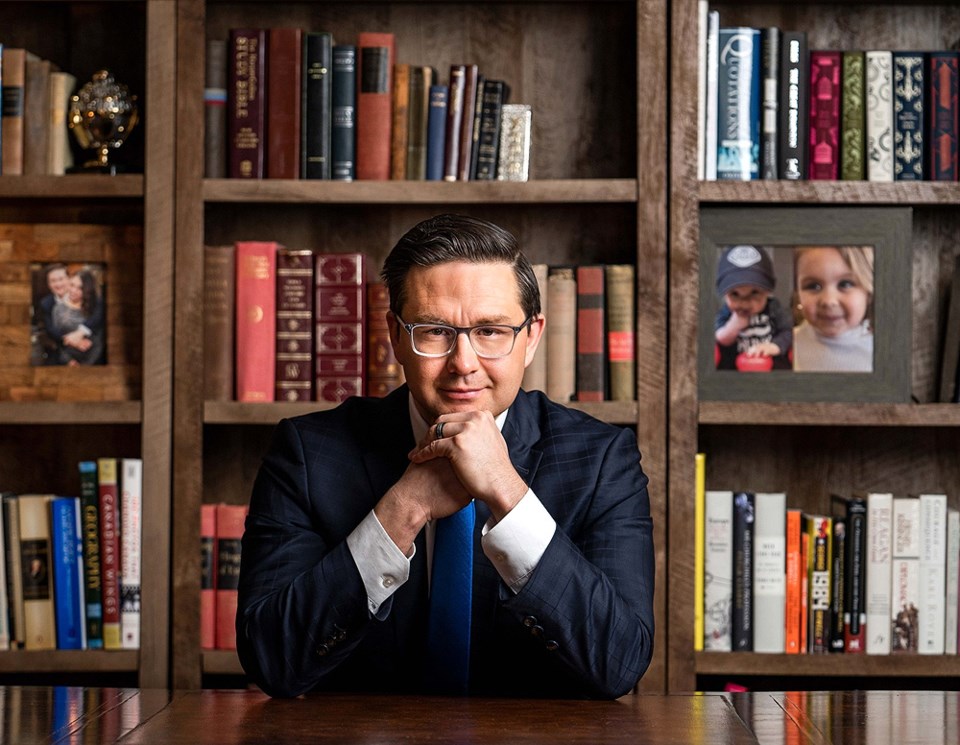Recent news coverage in Canada has been dominated by speculation over who will replace Prime Minister Justin Trudeau as leader of the Liberal Party. It’s a curious obsession. Whether Chrystia Freeland or Mark Carney emerges as the new leader, they are likely steering a sinking ship headed for electoral defeat.
The more pressing issue is understanding the man poised to become Canada’s next prime minister: Conservative Leader Pierre Poilievre. Is he the “true Conservative” he claims to be? And if so, are Canadians about to trade Trudeau’s overreaching progressivism for a hard-right approach under Poilievre? All indications suggest this may be the case.
True Conservatives, by their own definition, are committed to free-market principles championed by economist Milton Friedman. They advocate for small government, increased military spending, stricter crime policies, and reduced red tape. Tax cuts, often favouring the wealthy, are justified by trickle-down economics – a theory most economists have long discredited as benefiting only the richest while leaving others behind.
This brand of conservatism stands apart from the moderate, pragmatic approach of past Conservative leaders such as Joe Clark, Brian Mulroney, and Jean Charest. These so-called Red Tories believed in consensus-building and centrist policies. Their approach is often dismissed by Poilievre’s supporters as incompatible with true conservatism. Even Stephen Harper, regarded by many as a strong Conservative, faced criticism from hardliners for shifting toward the centre to broaden voter support.
Poilievre, by contrast, is unapologetically ideological. He has built his commanding lead in the polls by doubling down on free-market rhetoric, denouncing government intervention, and repeatedly chanting his populist “Axe the Tax” slogan. His endorsement of the 2021 Freedom Convoy, which paralyzed downtown Ottawa, aligns him with a global wave of right-wing populism. Confident in his electoral prospects, Poilievre has shown little interest in moderating his stance or building a broader political tent.
Why should he? Canadians, tired of Trudeau’s Liberals, seem willing to embrace Poilievre’s vision – flaws and all – even if some of his policies are deeply concerning.
To his credit, Poilievre has some solid ideas. He has pledged to lead a small government that “minds its own business,” offering a sharp contrast to the Trudeau government’s overreach into nearly every aspect of Canadian life. His promise to “put the government on a financial diet” is desperately needed.
Canada’s finances are under significant strain. The national debt exceeds $1.5 trillion, with annual interest payments of $57 billion. The 2023-24 deficit is now projected at $61.9 billion – 50 per cent higher than previously forecast. A return to fiscal discipline is not just desirable; it’s critical.
On crime, Poilievre’s stance addresses a genuine concern. Canada’s violent crime rate has surged by 30 per cent since 2014, and the homicide rate has climbed by 53 per cent. His proposals to impose mandatory minimum sentences for violent crimes, extortion, and auto theft could help curb these troubling trends.
In health care, Poilievre’s “Blue Seal” certification plan aims to standardize credentials for doctors and nurses across provinces, easing interprovincial mobility for health-care professionals. His pledge to expedite the approval process for foreign-trained professionals is another step in the right direction.
However, other aspects of Poilievre’s platform raise serious concerns. He has yet to clarify whether he would maintain the pharmacare and dental care programs introduced by the Liberals. These initiatives are proactive and cost-saving, addressing health issues before they escalate. Eliminating them could harm vulnerable populations, including seniors and low-income Canadians.
His approach to climate change is another weak spot. While eliminating the carbon tax may win him applause, his alternative solutions are vague. Green technology initiatives and unspecified emission targets offer little reassurance to those who see climate action as critical to Canada’s future. His voting record – repeatedly opposing environmental measures – only deepens the uncertainty.
Poilievre’s threat to fire Bank of Canada Governor Tiff Macklem also raises eyebrows. Politicizing an independent institution like the Bank of Canada sets a troubling precedent. His support for cryptocurrencies, such as Bitcoin, as a hedge against inflation raises further questions about his economic judgment.
And then there’s his vow to defund the CBC. While criticisms of the public broadcaster’s perceived biases are valid, dismantling an institution that plays a vital role in Canadian culture and identity would be a grave mistake. The CBC has showcased Canadian stories and voices, fostering unity across the country. Reform is reasonable; elimination is not.
Poilievre’s populist tendencies further complicate his candidacy. His embrace of the Freedom Convoy and anti-vaccine rhetoric panders to fringe groups, raising doubts about his ability to govern for all Canadians. Populism may rally a base, but it often lacks the thoughtful, balanced leadership needed to address a country’s real challenges.
So, what kind of leader will Poilievre be? Will he rise above the divisive rhetoric that has defined his campaign and grow into the role of a unifying prime minister? Or will Canada find itself with yet another polarizing figure at the helm, governing for a narrow base rather than the nation as a whole?
The stakes could not be higher. Poilievre’s promises of fiscal responsibility, safer communities, and streamlined health care offer hope to many. But his lack of clarity on key issues and his divisive approach to leadership leave room for doubt. Canadians deserve a leader who governs with vision, compassion, and an understanding of the country’s diversity.
Whether Poilievre can rise to that challenge remains to be seen.
Doug Firby is an award-winning editorial writer with over four decades of experience working for newspapers, magazines and online publications in Ontario and western Canada. Previously, he served as Editorial Page Editor at the Calgary Herald.
The commentaries offered on SaskToday.ca are intended to provide thought-provoking material for our readers. The opinions expressed are those of the authors. Contributors' articles or letters do not necessarily reflect the opinion of any SaskToday.ca staff.




